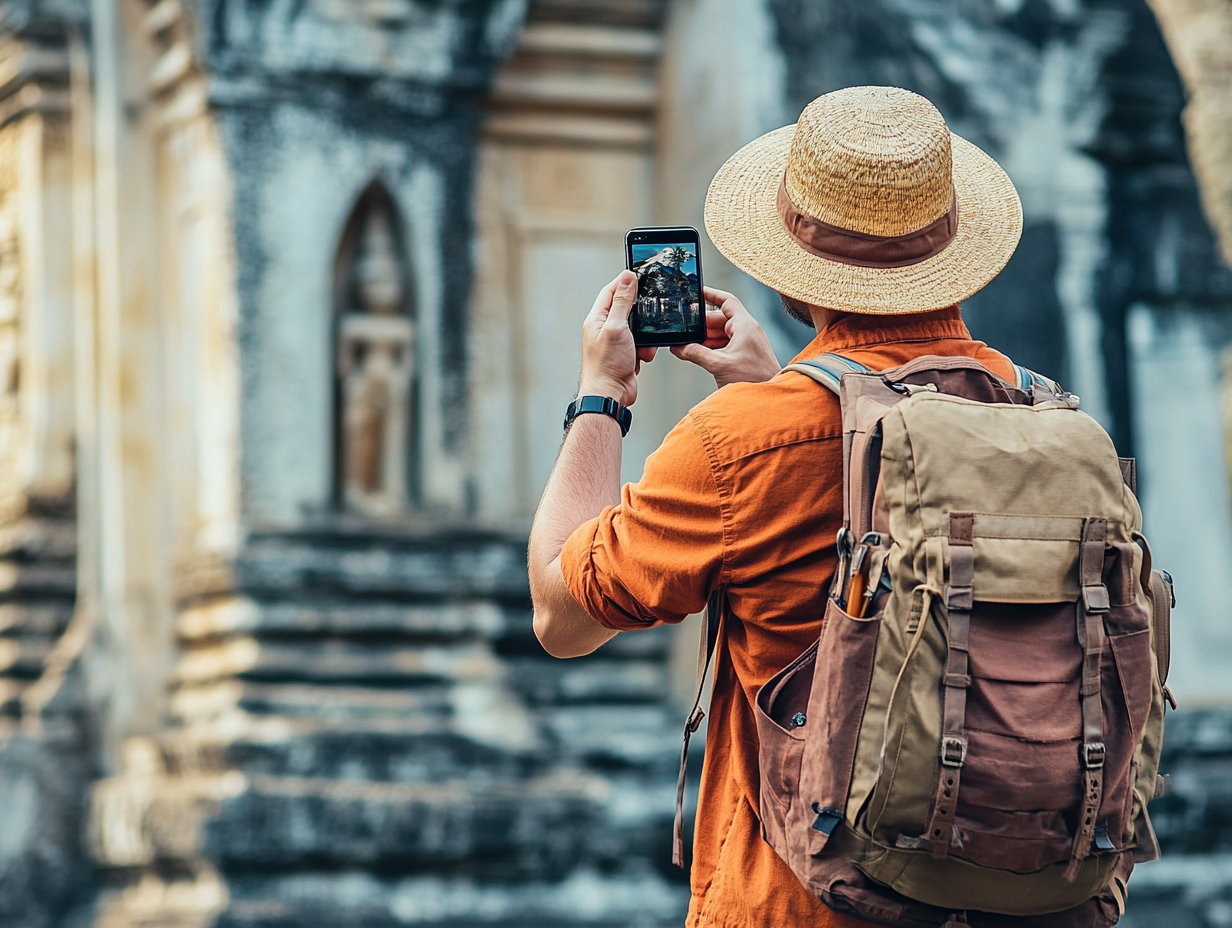Traveling can be one of life’s greatest pleasures, but it often throws a wrench into our usual routines, especially when it comes to eating healthy. Whether you’re on a business trip, vacation, or visiting family, maintaining a balanced diet while on the road can be a challenge. Fast food, airport snacks, and unfamiliar restaurant options can derail even the best intentions. However, with a little planning and smart choices, it’s possible to stay nourished and feel your best. Here are some practical tips for eating healthy while traveling.
- Stock the hotel mini fridge. “Put your own treats in the hotel fridge—easy protein and fiber sources like Greek yogurt, hummus, apples, and carrots is a game-changer,” says Kristen Lorenz, RD, private practice dietitian and owner of KLL Nutrition. “These options can either balance out carb-heavy convenience foods or serve as healthy, stand-alone snacks.”
- Aim for balance. “When traveling, it’s easy to fall into the trap of thinking you need to be either ‘perfect’ or totally off track with your eating,” says Lorenz. But it’s possible to find a happy middle ground. She suggests enjoying the local cuisine and experience, but also keep nourishing your body with some familiar, nutrient-dense options when possible.
- Enjoying local food, but in smaller quantities. One of the best parts of traveling, is indulging in the local cuisine, and you don’t have to sacrifice health to do it. “Focus on savoring smaller portions of rich or indulgent dishes and balance them with lighter, nutrient-dense meals,” says Lorenz. She also notes that mindful eating—taking your time and really tasting your food—can help you enjoy every bite without overindulging.
- Prioritizing fiber and protein. A good tip to help prevent overeating is to load up on fiber and protein. “When dining out, use the à la carte menu to easily add more vegetables or protein for a balanced, satisfying meal,” says Lorenz. This could be in the form of a side salad or sauteed vegetables, added protein to salad or broth-based soup with beans or lentils.
- Don’t skip meals. Skipping meals when traveling can lead to overeating later, cautions Lorenz. Try to stick to regular meal times.
- Pack plane snacks. “I like to recommend bringing healthy, pre-cut snacks, such as fruits and veggies, and sandwiches on whole-grain bread,” says Dana Ellis Hunnes, a senior clinical dietitian at Ronald Reagan UCLA Medical Center and an assistant professor in the department of community health sciences at the UCLA Fielding School of Public Health. “By doing this, you have more opportunities for fiber-rich foods that help keep digestion healthy and also are full of vitamins and minerals which help keep your immune system healthy.”
- Don’t wait too long to eat. “When we are hungry we are less able to make ‘good’ and healthy decisions because everything can look, smell, or sound enticing,” says Hunnes.
- Plan how frequently you want to eat out. “Restaurant foods, while amazingly delicious, also are often higher in sodium and saturated fat,” says Meghan Pendleton, Registered Dietitian, Owner at Meghan Pendleton Nutrition. If you’d prefer to be able to prepare some meals yourself, that might mean planning to stay at a rental with a kitchen.
- Hit the local grocery store. “When traveling, I suggest hitting a local grocery store to buy some healthy snacks to have on hand—like fresh fruit, protein shakes, veggies, nuts, or yogurt,” says Nicole Ibarra, a registered dietitian.
- Avoid or limit booze. It’s a good idea to avoid or limit alcohol while traveling since it dehydrates you and can also slow down digestion,” says Hunnes. Drinking can also increase hunger levels and cause excessive snacking. “I’d suggest trying to pick a day or two if you want to drink and stick to one or two drinks max,” says Ibarra. Alternatively, you can try to dilute your alcoholic beverage to make it last longer. For instance, if you’re having white wine, you can add some sparkling water.
- Be active. “If you find eating a struggle when you travel, try focusing on other healthy lifestyle habits like activity,” says Ibarra. Go out to walk and explore the area. Focusing on walking is beneficial for your health by helping mental health, adding exercise in, and can help regulate blood sugar levels.
- Don’t be afraid to order sauce on the side. Restaurants are usually flexible with modifications, so feel free to ask for a healthier version of what’s on the menu.



